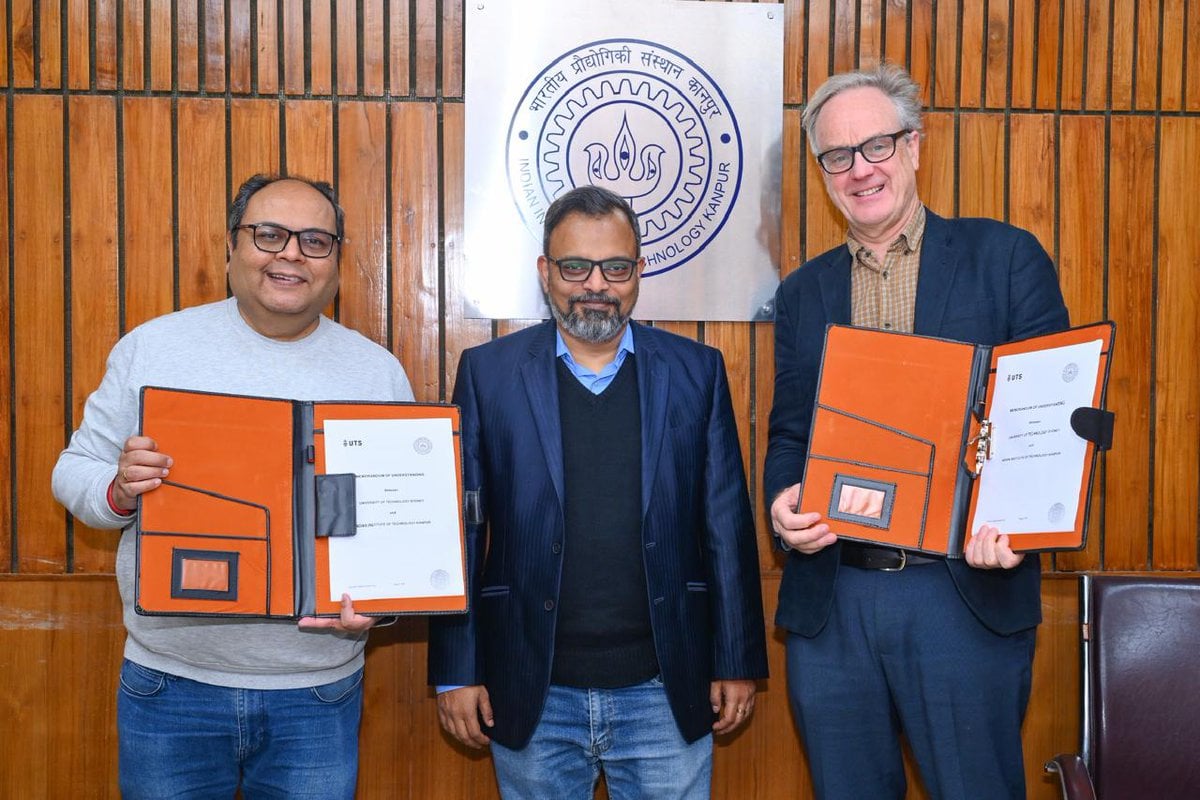- Posted on 19 Jun 2025
- 4-minute read
As climate change increasingly influences national and global policy, “just transitions” is becoming a cornerstone for inclusive climate governance.
International scholars visiting UTS from the Just Transition Research Centre (JTRC) at the Indian Institute of Technology Kanpur (IIT Kanpur) have been investigating the role that trade unions and wider civil society actors play in climate change and energy transition discourse.
Prof James Goodman, Co-Director of the UTS Climate Society and Environment Research Centre (C-SERC) and Head of the School of Communication, explains that “just transitions is a key policy agenda for energy transition that is designed to ensure social justice for affected communities. It is a priority in both India and Australia, especially for coal-dependent regions.”
Prof Pradip Swarnakar is the Founder of the Just Transition Research Centre, and Head of Dept of Humanities and Social Sciences at IIT Kanpur, and a UTS Visiting Professor.
He is supervising visiting PhD scholars Mayurakshi Acharyya and Naorem Nishikanta (Nishi) Mangang from IIT Kanpur who have been researching the role of trade unions and other civil society actors in India's energy transition.
Climatizing Labour, Excluding Unions? Just Transitions and Labour Unions’ Role in India
It is crucial for impacted workers and communities to be central in the conversation as energy transition accelerates. Labour unions are acknowledged as critical stakeholders in decarbonisation and energy policy conversations, but Mayurakshi and Nishi observe that Indian unions are often sidelined.
“In the Indian context, the practice of integrating labour concerns into climate policy is dominated by state agencies, policy think tanks, civil society organizations, and corporate actors - a top-down and technocratic approach tends to marginalise unions”.
Their findings highlight the place of Indian labour unions in the planning and institutionalization of just transition; revealing structural barriers to Indian labour unions meaningfully participating in climate governance; and argues for a worker-centred, inclusive approach. Some of their key findings are published in Energy Research and Social Science.
Understanding the Australian context
While at UTS, Mayurakshi and Nishi have been interviewing unionists and visiting coalfields in NSW and Victoria.
For the past two months they have been observing how trade unions and wider civil society actors are contributing to climate change and energy transition policy in Australia, and the strategies they adopt advocate their goals.
Prof Goodman is lead co-author for the upcoming book Decarbonising Electricity - The Promise of Renewable Energy Regions (Cambridge University Press, coming later this month) which finds parallel trends across India, Germany and Australia.
He stresses the centrality of labour unions to the process of energy transitions and says that “with the transition from fossil fuels to renewable energy, trade unions become active players in regional planning to ensure a just transition for all.”
Strengthening international collaboration with new MoU
Mayurakshi and Nishi’s visit to UTS is part of a long and successful international researcher exchange program between UTS C-SERC and JTRC-IIT Kanpur involving Prof Goodman, Prof Devleena Ghosh and Dr Julia Scott-Stevenson (UTS) and Prof Swarnakar (IIT Kanpur).
UTS and IIT Kanpur recently celebrated their partnership by signing a new Memorandum of Understanding (MoU) to foster future student and faculty exchanges, joint participation in international research projects, and other academic collaborations.

The MoU was signed by Tania Bezzobs (Director, UTS Research Office) and Prof Tarun Gupta (Dean, Research and Development, IIT Kanpur) with Professors Swarnakar, Goodman and Ghosh attending.
Reflecting on the significance of the relationship and the work ahead Prof Goodman says:
“We have been working together on the issue of energy transitions for almost a decade, with many important advances. When we began, ‘just transitions’ was a marginal concept, mainly championed by the trade union movement and by some academics. Today it is at the centre of regional planning – especially in regions dependent on coal, oil and gas.”
“This MoU allows us to greatly expand our shared research on this vitally important issue.”
For further information, please contact James Goodman at james.goodman@uts.edu.au.





